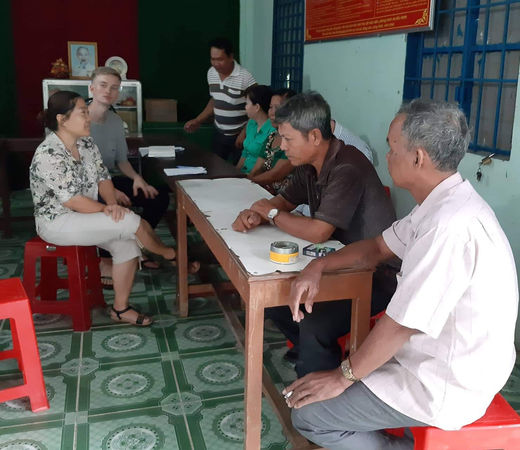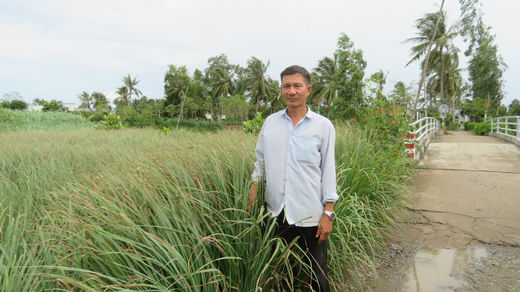Vulnerability and adaptation in the Mekong Delta
It is often said that the ones who contributes the least to climate change are the ones who are the most vulnerable to its effects. But what does it mean to be vulnerable, and how can it be addressed?
Vulnerability can be understood as the lack of capacity and ability to cope with and recover from hazards. Such hazards can take many forms; one of them being climate change. Lack of education and knowledge, low income, poor market access, low productivity, inadequate infrastructure, and poor management of natural resources are examples of factors that can hamper the ability to cope with such a hazard – some of them is present in the Mekong Delta.
Vietnam, Mekong included, has undergone significant development during recent decades, which can be exemplified trough the decreasing ratios of poverty and undernourishment. However, there are challenges in reaching everyone and “leaving no one behind”. The international community is currently working towards achieving the Sustainable Development Goals (SDGs) by 2030. Furthermore, the Government of Vietnam has created several action plans and strategies regarding topics such as socio-economic development, climate change and food security. In order to achieve the targets, the policies need to be more broadly implemented and addressed, all the way down to grassroot level. Global and national plans need local adjustments and embedment; one approach may work in one commune but is unsuitable in another. In this aspect the work of NMAV becomes particularly relevant. Macro-level strategies are addressed on a local level trough cooperation with stakeholder.

When speaking with farmers in Tieu Can district, Tra Vinh province and Tan Phu Dong district, Tien Giang province, two issues are often highlighted: Low and unpredictable prices on commodities, as well as changes in the environment and conditions for farming. These changes are both due to inadequate natural resource management, as well as climate change and diseases on crops and livestock. If these threats are to be coped with, farmer’s vulnerability needs to be addressed. Key solutions that is being promoted is for instance the establishment of cooperatives, training and education, as well as transforming farming models to become more resource efficient, environmentally friendly and climate resilient.
When speaking of climate change, we see a limited level of knowledge about the causes and effects of the changes. Farmers have first-hand experience in living with changing conditions, and they are the first one to be affected. On the other hand, there is insufficient knowledge on the long-term predictions of the changes, and how their livelihood will be affected in several years from now. Also, it is a challenge for farmers to invest in a strategy that will pay off in 3, 5 or 10 years, as the majority are always depending on the income from the next yield.
Adaptation in the Mekong Delta is not a luxury, it is a necessity. Trough close cooperation between local farmers, organizations, business and authorities, there are opportunities to build resilience. The combination of local and scientific knowledge is essential in this process. In that way one can ensure more predictable incomes, increased knowledge, continued poverty reduction, and a future for sustainable farming livelihoods.
By Erlend Olafsrud, master student in International Environmental Studies in Oslo, based on research in NMAVs project areas.
